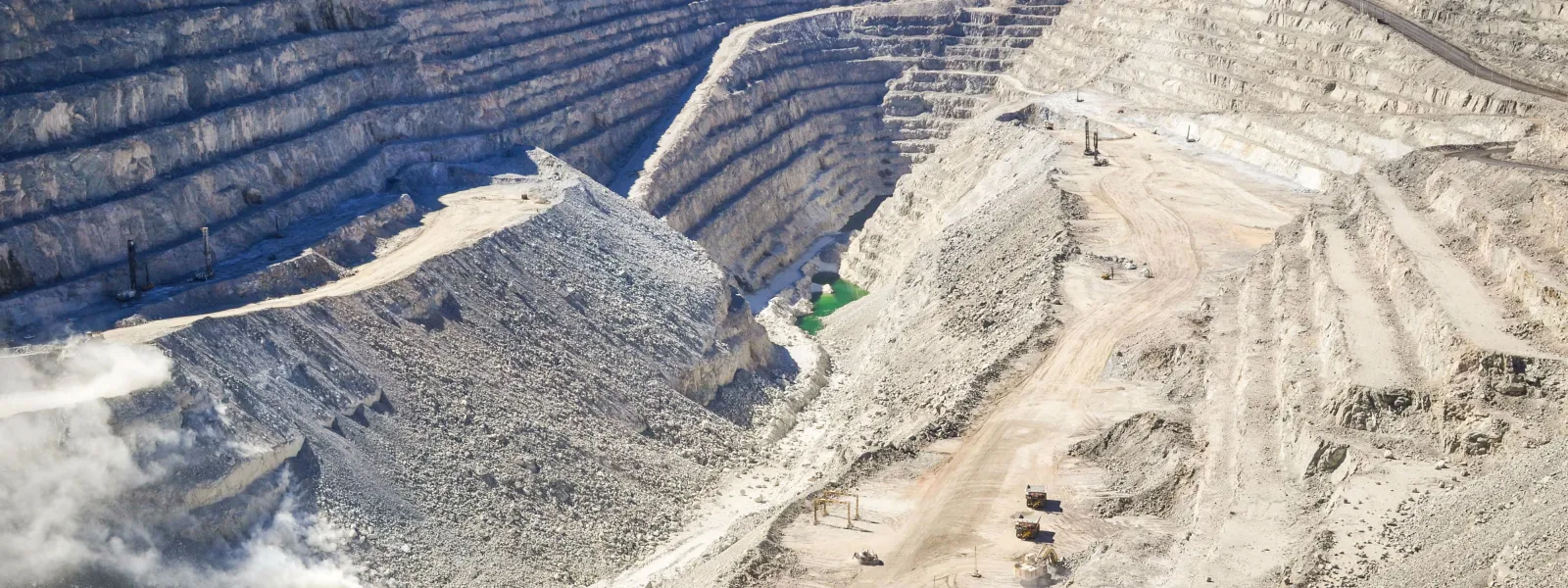
Project
Jbdodane / FlickrOffering communities scientific support to stop mining’s damages
Mining is an economic activity with serious environmental costs. Often, communities located near mining projects do not have access to truthful, complete and objective information on the harms and benefits of extractive industries.
This is compounded by the pollution and water depletion such activities cause in nearby rivers, lakes and other water sources. These risks often occur when mining projects are not adequately evaluated before being approved. And, too often, environmental impact assessments are not based on the best available scientific information.
Now more than ever, we must bridge the information gap between communities and the mining projects that affect them.
Review our Mining Resources Page
Learn About Our Mining Webinar Series (in Spanish)
Partners:
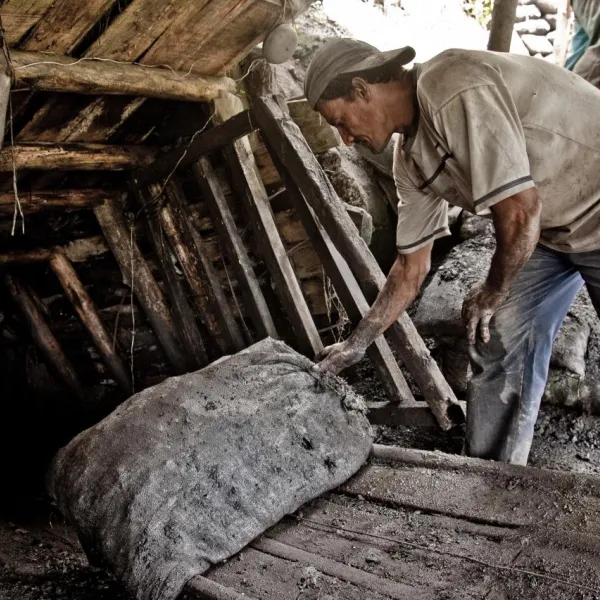
Related projects
Latest News
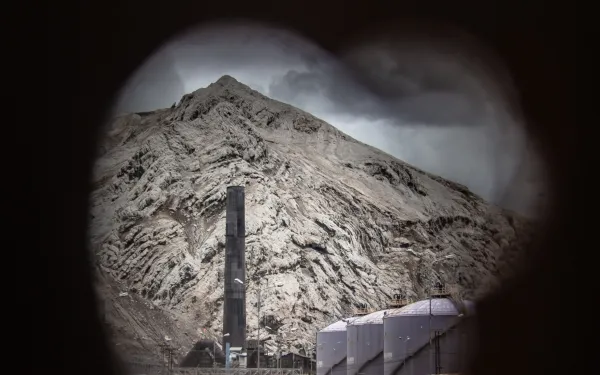
Science in the Service of Environmental Justice
By David Cañas and Mayela Sánchez* Science—or rather, the sciences—are the systems of knowledge that different social groups have developed over time to describe the phenomena of nature and society. Thanks to these knowledge systems, humanity has been able to find solutions to countless challenges, and today, more than ever, they must respond to global crises such as climate change, pollution, and biodiversity loss.Understanding ecosystem processes is essential for protecting the environment and providing verifiable, replicable evidence of natural phenomena and the impacts of human activities. It also enables the development of innovative solutions to protect and restore the environment.For science to contribute meaningfully to environmental justice—a concept centered on ensuring that all people enjoy a healthy environment—scientific work must be grounded in the realities of the people and communities affected by environmental degradation, who live in or rely on ecosystems vulnerable to harm. It must also be built on empathy and respect for other forms of knowledge, while seeking to reduce social inequalities.At AIDA, science is a central part of our work, supporting and complementing the strategic litigation we pursue to protect a healthy environment in Latin America. Through science, we can demonstrate the environmental impacts caused by human activities and hold those responsible accountable. How Do We Do Science at AIDA? The AIDA scientific team is a multidisciplinary group of professionals specializing in diverse fields, including geography, geology, biology, marine biology, oceanography, anthropology, and economics.Among other tasks, they collect and develop scientific evidence to strengthen the legal arguments in the cases we support across our various lines of work—from protecting the ocean and other critical ecosystems to defending human rights, such as the right to health and access to safe drinking water.The strategic use of science has been central to AIDA’s work since the organization was founded more than 25 years ago. One early example is the case of La Oroya in Peru, where a group of residents sued the government for failing to protect them from decades of heavy metal pollution caused by a metallurgical complex.Then we did something that had not been done before: we connected existing studies with the lived reality of La Oroya. This approach allowed us to demonstrate the relevance of the case and establish a clear link between pollution and its impact on the health of the city’s residents. Our analysis, compiled in the report La Oroya Cannot Wait, served to build the legal case and formulate proposals to the Peruvian government for corrective and preventive measures to address the problem. In 2024, in a decision that set a historic precedent for state oversight of industrial pollution, the Inter-American Court of Human Rights held the Peruvian state responsible and ordered it to adopt comprehensive reparations measures. Among the scientific team’s more recent contributions is a geospatial analysis of the Salar del Hombre Muerto in the Argentine provinces of Catamarca and Salta. Using maps and satellite imagery, the team documented water loss in this ecosystem caused by lithium mining.Another example is the expert report on solid waste pollution in the tributaries of the Motagua River in Guatemala, in which we recorded and characterized illegal dumps along the banks of the Chinautla River. This work enabled the affected communities to gather the evidence needed for the lawsuit they filed against the municipality of Chinautla for failing to address the contamination of rivers and soil caused by inadequate solid waste management. The Right to Science When science serves social and environmental justice, its benefits extend to everyone. This purpose was recently upheld by the Inter-American Court of Human Rights in its Advisory Opinion 32, which recognizes the “right to science” as the right of all people to enjoy the benefits of scientific and technological progress, as well as to have opportunities to contribute to scientific activity without discrimination.The Court also recognized indigenous, traditional, and local knowledge as equally valid forms of knowledge. This acknowledges how the deep understanding that indigenous peoples and local communities have of their environment—their worldview based on respect and interdependence, and their spiritual connection to nature—has been fundamental to ecosystem conservation.As an organization that uses science as a tool for environmental protection, we believe in a science that embodies these principles: one built on dialogue between different forms of knowledge, whose benefits reach all people, and which contributes to the socio-ecological transformation the planet urgently needs. *David Cañas is AIDA's Interim Director of Science; Mayela Sánchez is our digital community specialist.
Read more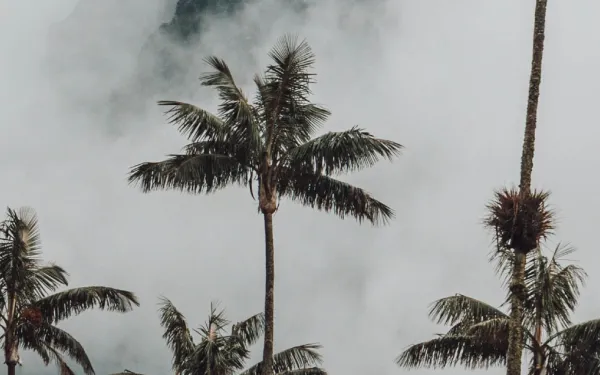
Environmental responsibility through supply chains
This report emphasizes the importance of binding legislation for companies to comply with environmental aspects as well as human rights throughout their supply chains.The document reviews environmental impact assessments as an instrument of due diligence and corporate responsibility in their supply chains. It examines the independent monitoring of impacts of business operations, and reflects on environmental guarantees and human rights for the legislative processes of due diligence. Download the publication
Read more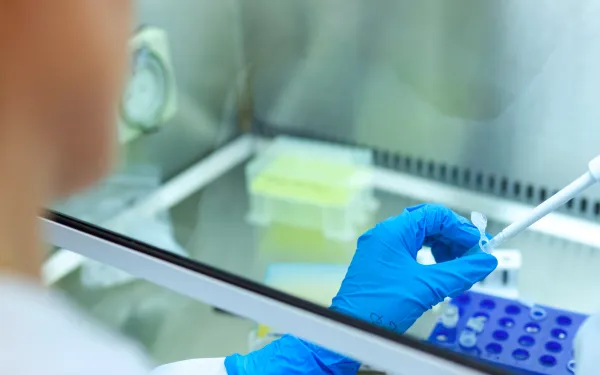
Science as a human right and a tool for environmental justice
By María Fernanda Ordoñez y Andrés Ángel According to the Encyclopedia Britannica, science is any system of knowledge that is concerned with the physical world and its phenomena and that entails unbiased observations and systematic experimentation. For its part, the United Nations (UN) defines science as the tool created by human beings to understand the world around them, and thus apply that knowledge to their benefit. If science is such an important tool, why is it not available to everyone? There is still a long way to go before science is recognized as a human right, and even the advances that have been made to that end are not well enough known. The so-called right to science was formed in the 1948 Universal Declaration of Human Rights, article 27 of which states that "everyone has the right to participate in scientific progress and in the benefits resulting therefrom.” It is also referred to in the Charter (Article 38) of the Organization of American States and in the American Declaration of the Rights and Duties of Man. In addition, the International Covenant on Economic, Social and Cultural Rights—which entered into force in 1976—recognizes in its Article 15 the right of every person to "enjoy the benefits of scientific progress and its applications.” It is precisely to raise public awareness of the responsible use of science for the benefit of society that World Science Day for Peace and Development is celebrated every November 10. The big gaps remaining Although the right to science is promoted by various world class scientific organizations, like the American Association for the Advancement of Science (AAAS), its application is still relatively unknown. This may be due in part to ignorance and economic difficulties in some countries. In Latin America and the Caribbean, socioeconomic, racial, and gender gaps are the major obstacles to the establishment of the universal right to science, which is closely linked to other rights, such as the right to education. According to UNESCO’s 2017-2018 World Education Report, 52 percent of children and adolescents in the region fail to reach minimum levels in mathematics and 36 percent fail in reading. In addition, in 2015 the rate of out-of-school youth of secondary school age reached 15.3 percent. A more telling indicator is the percentage of the Gross Domestic Product (GDP) allocated to public education, which stands at an average of 5 percent. In terms of the percentage of GDP allocated to research and development, the World Bank data shows that the countries that allocated the most resources for this purpose in 2017 were Brazil (1.26%) and Argentina (0.54%), followed by Cuba (0.43%) and Costa Rica (0.42%). The lowest figures were recorded in Guatemala (0.03%), Honduras (0.04%) and Peru (0.12%). These figures demonstrate that there are profound challenges to be faced in order to create the necessary conditions for the effective exercise of the right to science. Science in the Service of Environmental Justice Scientific advances allow us to find solutions to the new economic, social and environmental challenges we face on our way to a more just and sustainable future. Most communities in Latin America lack access to basic tools, or the training to develop programs for independent monitoring of environmental parameters, such as air or water quality. Thus, communities are at a serious disadvantage in the context of socio-ecological conflicts that may result from proposals for large mining, oil, and agro-industrial projects. However, it’s worth highlighting and promoting progress where it exists. It is encouraging to hear from empowered communities that have decided to implement community water quality monitoring programs, epidemiology initiatives, and many others. There is also hope because UNESCO data shows gross enrollment in higher education rose from 22 to 46 percent between 2000 and 2015. Likewise, many of the region’s civil society organizations are supporting the recognition of the right to science. At AIDA, scientific knowledge is used to strengthen our legal strategies to protect people and environments in the region. During the AAAS’s Conference on Science, Technology, and Human Rights in October 2019, we explained the link between science and human rights advocacy, and how we apply it in our work. Two months earlier, in August, UNESCO organized their first Latin American workshop in Argentina to discuss the development and implications of the right to science. There, the right to science was defined as a major focus of the organizattion’s work in the region. Strengthening the right to science in Latin America is vital for promoting more just and sustainable societies, where socioeconomic, racial, and gender gaps do not impede access to information as a common good. It’s essential to involve trained people committed to research in projects, organizations, and entities that promote social and environmental justice. In addition, the support of scientific professionals is fundamental to the process of knowledge transfer between countries and regions. This support is indispensable for the development of effective and efficient public policies. Finally, it should be noted that science should not only contribute to overcoming information asymmetries among actors in society, but should also be practiced and developed within a framework of respect for the rights of nature and human rights. At AIDA, we will continue to promote the right to science, building new capacities and strengthening existing ones, both for our partners and for the communities we support.
Read more